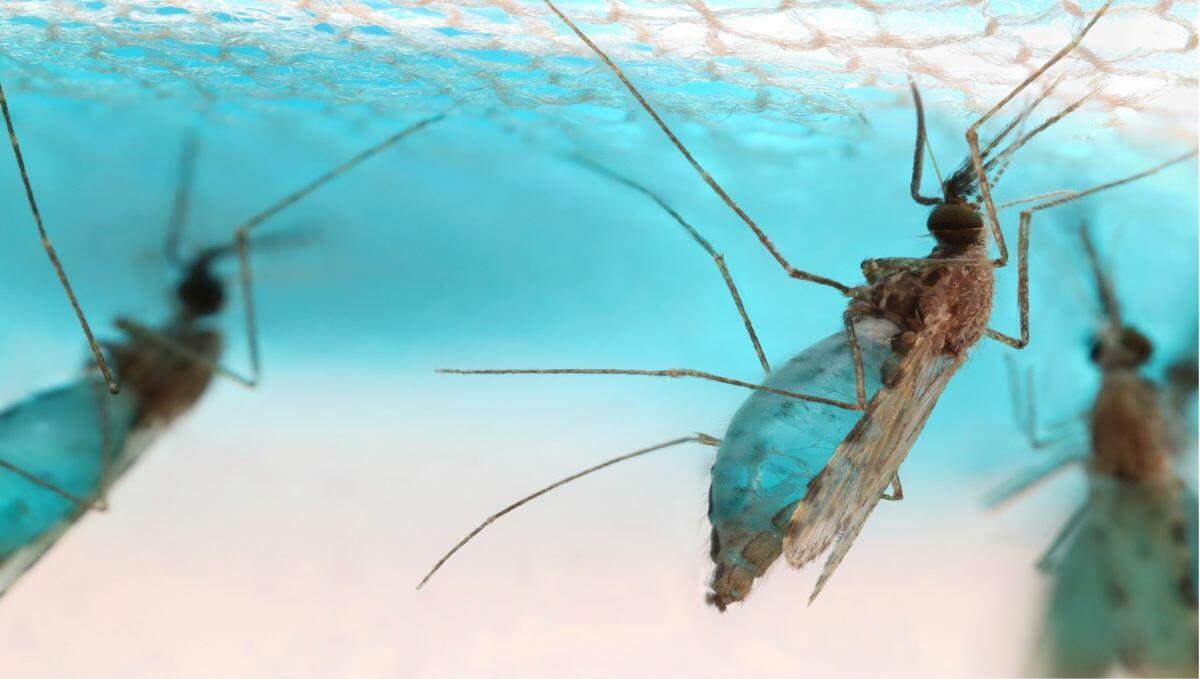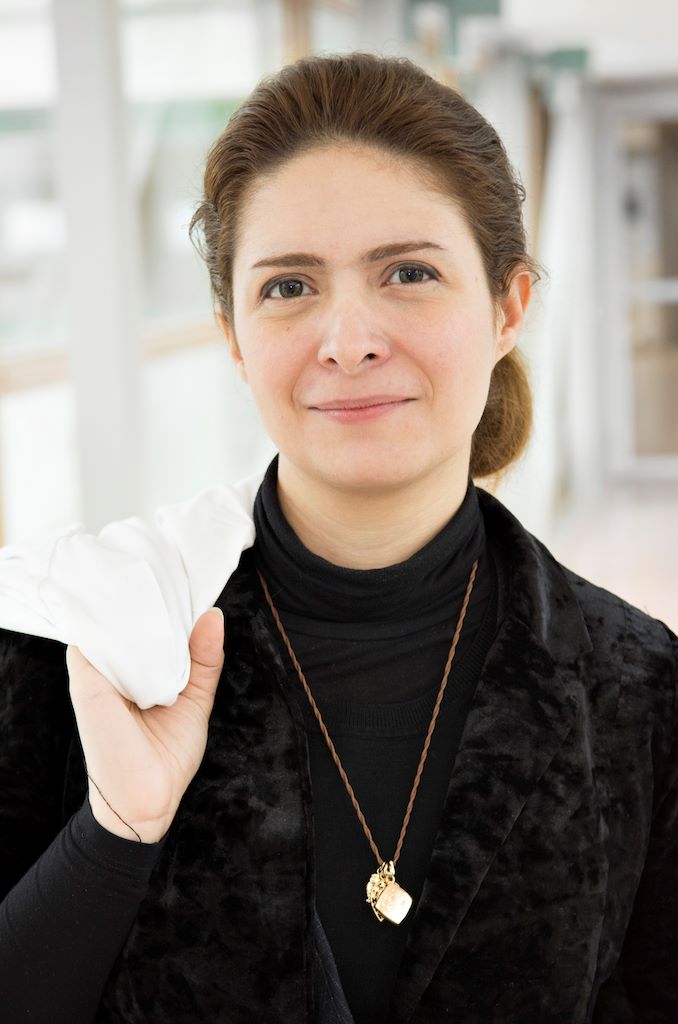
An infection biologist whose research mimics mosquito communication tools to encourage them to feast on a blue cocktail rather than human blood has been named one of Sweden’s top scientists.
Dr Noushin Emami was appointed as a Reader at Liverpool School of Tropical Medicine in September, and today her research is listed on the Royal Swedish Academy of Engineering Sciences (IVA)'s annual 100 list, which highlights high-quality research projects from Swedish universities.
Dr Emami has been recognised for her innovative vector control research at Stockholm University, which focuses on how both mosquitoes and the pathogens they carry can communicate over long distances. She is working to decode this ‘language’ to help control disease spread and reduce the number of mosquitoes carrying diseases.
Her research disrupts mosquito behaviour by harnessing semiochemicals – pheromone-like small scent signalling molecules they transmit to each other before mating - to attract them to a food source. This contains the same stimulant to encourage eating that the malaria parasite emits when they bite a human host, so that the mosquito instead feasts on liquid infused with blue colouring and breaks the cycle of disease transmission.
Now in its sixth year, IVA's annual 100 list showcases projects that have potential benefits through commercialisation, business and method development or societal impact. It is the latest recognition for Dr Emami from the prestigious body from her time as a researcher at Stockholm University. Last year, she won its Flormanska prize, awarded for “outstanding scientific efforts in medicine, mathematics, biology, nature conservation and astronomy”. The annual 100 list ceremony was live streamed on the IVA website.
Dr Emami’s research underpins Molecular Attraction, a company that has recently received an EU Accelerator Grant to develop innovative vector control solutions that provide an eco-friendly alternative to insecticides. These are now being trialled in South Africa, South America, and the Seychelles ahead of potential further development.

Dr Emami said: “I’m thrilled and honoured to have my work recognised by experts in the field within IVA. It’s gratifying to know that our efforts may make a difference on both a national and international level. All the long hours and challenges are finally showing results.
“Our approach achieves two vital goals with one solution: saving lives and preserving biodiversity. By reducing reliance on harmful pesticides, we’re not only combating mosquito-borne diseases but also protecting pollinators and the broader ecosystem. It’s a win-win scenario that I believe will resonate with both the public and policymakers.”
Dr Emami will continue with her research at LSTM, working with a team of experts in genetics, innovation and vector control within the Vector Biology department. She will focus her research on bioactive products to control the transmission of diseases for mosquitoes, other vectors and parasites, with the potential of also developing new drug treatments.
She said: “Joining LSTM is an incredible opportunity to advance my mission and showcase my dedication to innovation. I am truly honoured and excited to be part of an institution with a strong legacy of pioneering methods and nurturing new ideas. This role not only allows me to collaborate with esteemed scientists but also connects me with a vibrant community committed to impactful research. I hope that this experience will contribute not only to my own growth but also to scientific and engineering breakthroughs that ultimately save lives and protect our ecosystem.”